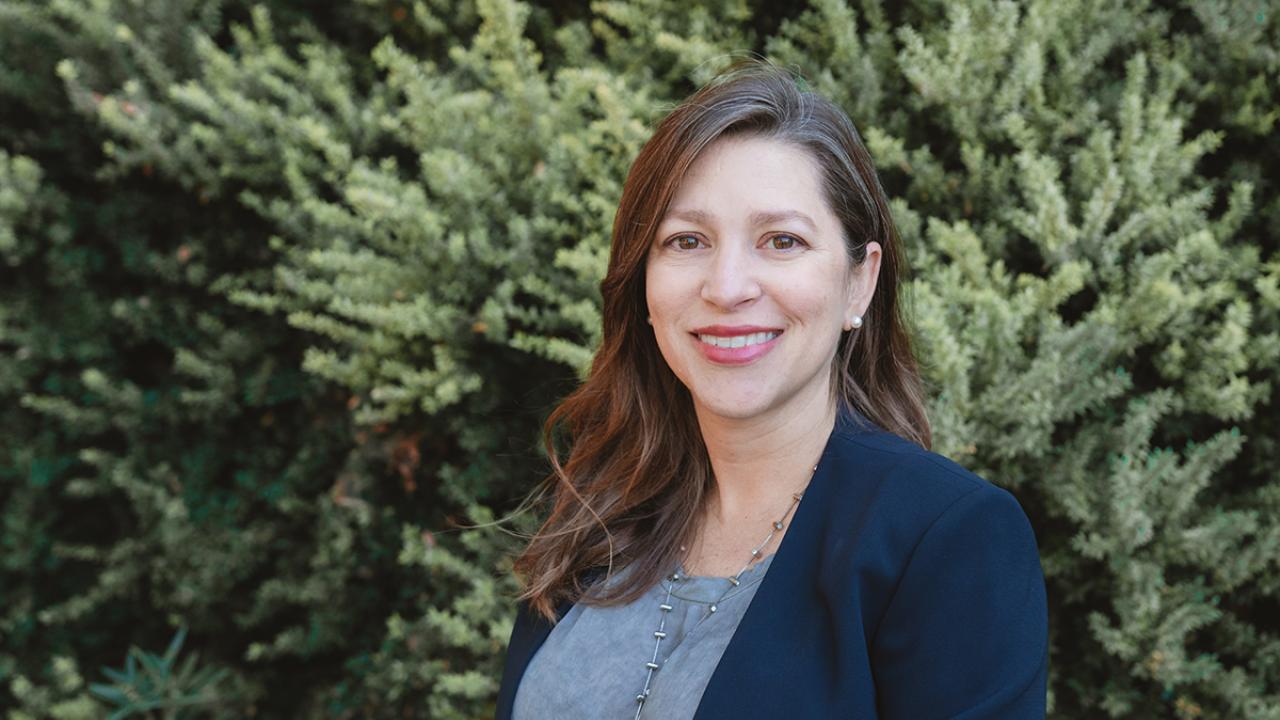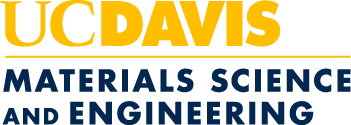
Professor Leads Cross-Disciplinary DARPA Project to Advance Photonic Devices
Materials science and engineering professor Marina Leite has received $1 million from the U.S. Defense Advanced Research Projects Agency to develop novel materials for faster, more efficient switchable photonic devices, greatly expanding the technology's use.
Switchable photonic devices can manipulate or detect light and are relevant for developing hyperspectral imaging systems, important for attaining information about the visible spectrum beyond primary colors, and laser beam steering, a method for controlling the direction of radiation.
"Switchable optical devices enable us to achieve substantial changes in light absorption, transmission and reflection in a reversible manner," Leite said. "They are important because they can allow for a system, such as a window, to be transparent to light or not, ideally on command."
However, these devices have struggled due to their sluggish pace of moving between states, such as transparent and opaque.
"All prior approaches to achieve switchable photonics have limitations, either regarding the speed in which the changes in the optical response occur or they are coupled to significant light absorption, known as loss within the photonics community."
These limitations are primarily caused by affecting change to the device's refractive index through temperature, Leite explained. The refractive index is a measure of how much something bends light as the light passes through it.
To overcome this downfall, Leite is designing switchable photonic devices with hybrid perovskites, a class of materials with physical properties that can be controlled through light alone.
Over the past seven years, Leite and her research group have developed a significant body of research into hybrid perovskites' electronic and optical properties. Leite and her team will apply what they have learned to find the most promising chemical compositions.
To aid with identifying the optimal chemical compositions and to predict their specific optical performances, Professor Houman Homayoun in the Department of Electrical and Computer Engineering will develop novel machine learning algorithms, as needed. Professor Jeremy Munday of the same department will also assist, offering his expertise in engineering the fundamental interactions between light and matter.
"Cross-disciplinary collaboration is critical for the success of our project," Leite said, "because we are proposing a solution to a longstanding problem in the field of photonics that requires knowledge in distinct areas, encompassing materials research, machine learning, light-matter interactions and device design."
